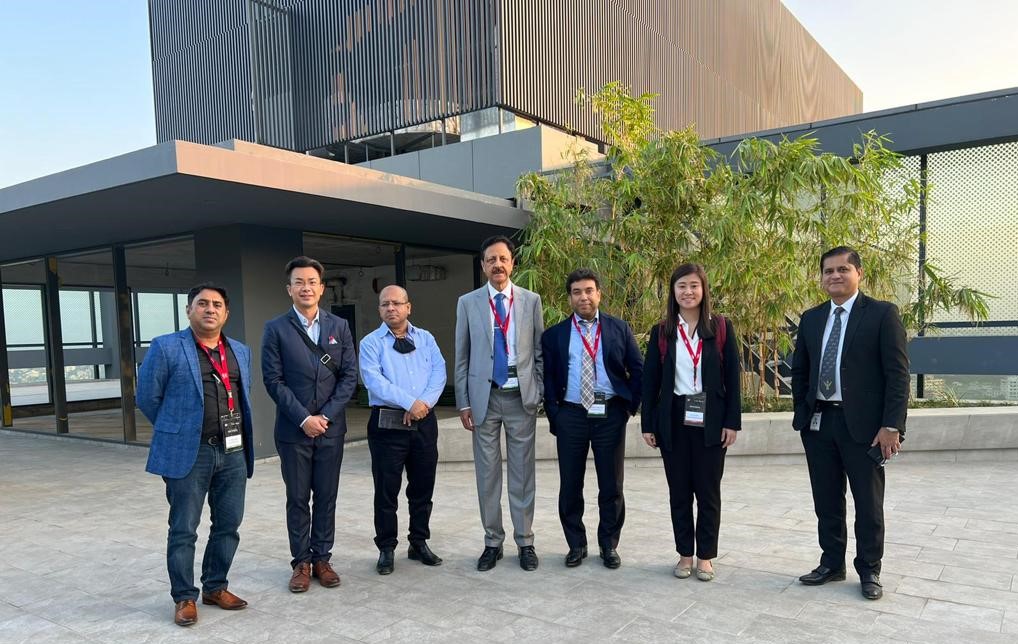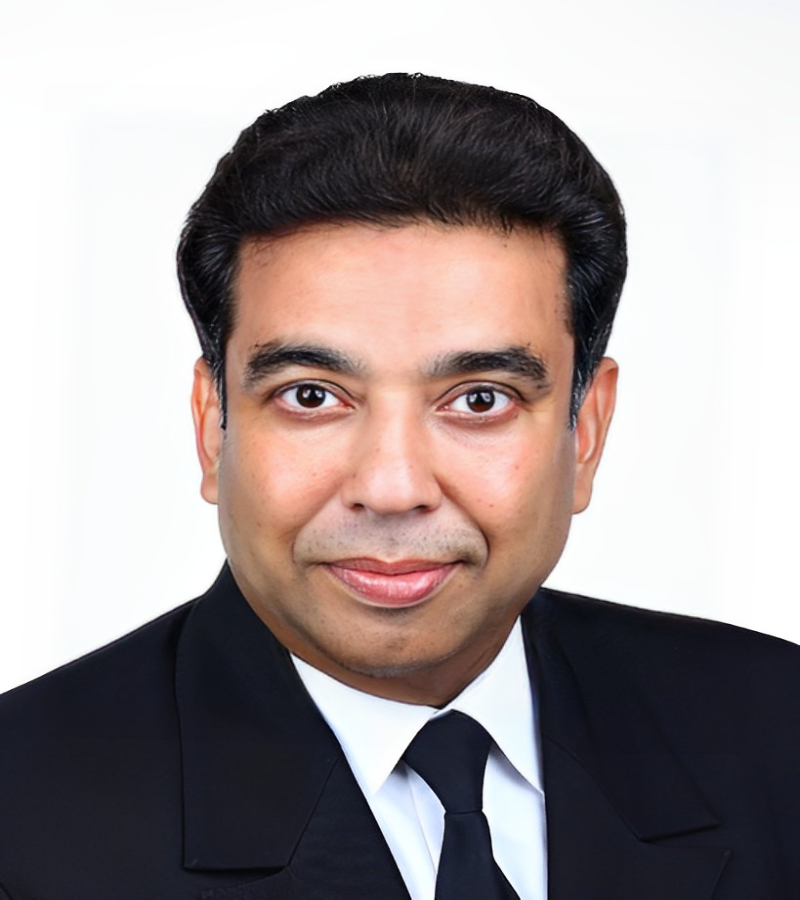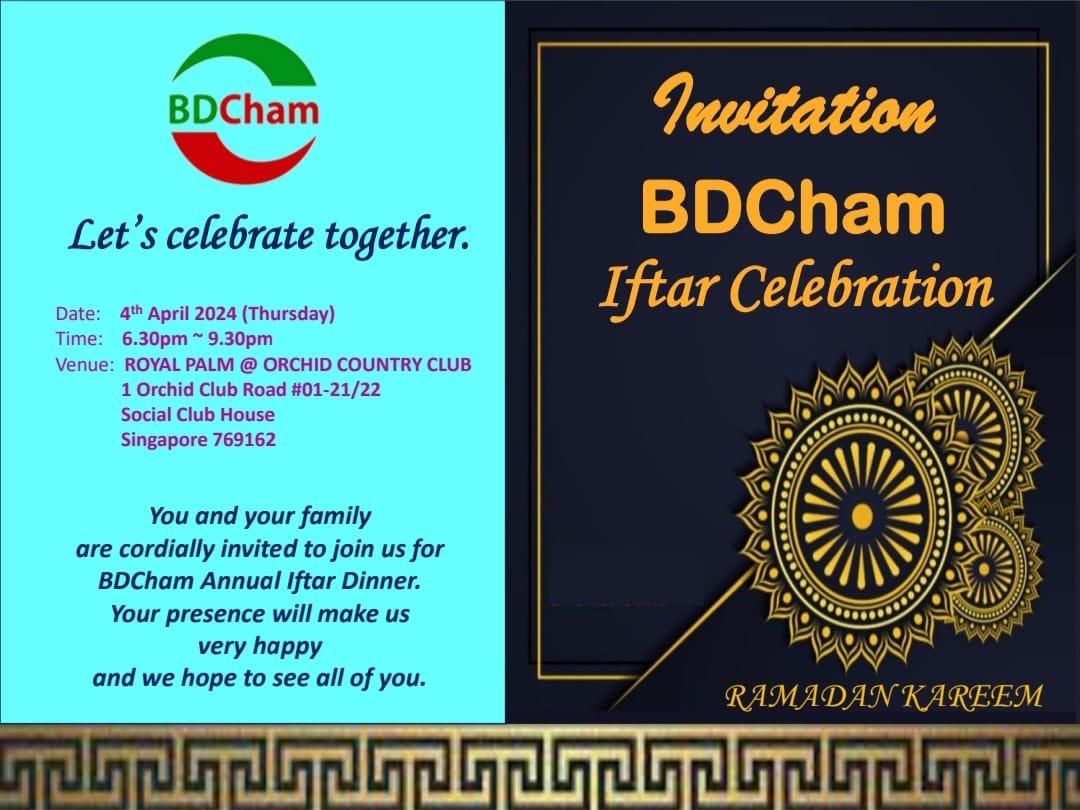About Us

Historically Singapore has been an attractive venue for trade and investment for centuries. From a small colonial trading outpost it transformed itself into a modern cosmopolitan, a multicultural and multiracial business and a financial hub much sought after by foreign investors around the world, thanks to its efficient and competent leadership and government.
Many of our fellow Bangladeshi businessmen have taken the opportunities offered by Singapore and successfully developed small and medium business enterprises (SMEs). In the recent years the Bangladeshi business community has seen a phenomenal growth both in terms of numbers and diversity of businesses. The necessity of a common business forum to complement that growth has been on many of our minds for quite some time. The Cham...
Become A Member
Register NowLatest Events
Management Council

Modh Shahiduzzaman
President

Md Moniruzzaman
Vice President

Anamul Islam Liakat Ali
Vice President

Asaad Mamun
General Secretary
BD-S'PORE COOPERATION
-
What Bangladesh Can Learn from Singapore ?
Bangladesh can learn several lessons from Singapore, which has been widely regarded as one of the most successful countries in terms of economic development and good governance. Some of the lessons that Bangladesh can learn from Singapore are:
Focus on Education: Singapore places a high emphasis on education and invests heavily in its education system. Bangladesh can learn from this by investing more in education and creating a skilled workforce that can drive economic growth and development.
Good Governance: Singapore is known for its efficient and transparent governance. Bangladesh can learn from this by improving its governance and reducing corruption, which can boost foreign investments and create a conducive environment for businesses to thrive.
Embrace Technology: Singapore has embraced technology and has one of the most advanced digital economies in the world. Bangladesh can learn from this by leveraging technology to improve efficiency and productivity, and creating a conducive environment for startups and innovative businesses.
Urban Planning: Singapore is known for its well-planned and well-maintained cities. Bangladesh can learn from this by investing in urban planning, building infrastructure, and improving public transportation to reduce traffic congestion and create a more livable environment.
Social Harmony: Singapore has a multicultural society with a high level of social harmony. Bangladesh can learn from this by promoting tolerance and social harmony among its diverse population, which can lead to a more inclusive and cohesive society.
Overall, Bangladesh can learn a lot from Singapore's success in various areas and can use these lessons to drive economic development and improve the standard of living for its citizens. -
What Singapore Can Learn from Bangladesh ?
There are several areas where Singapore can learn from Bangladesh:
Microfinance: Bangladesh has been a pioneer in microfinance, which provides small loans to low-income individuals to help them start businesses or improve their livelihoods. The success of microfinance in Bangladesh has led to the development of a thriving micro-entrepreneurship sector, which Singapore could learn from in order to support entrepreneurship among its low-income residents.
Textiles and garment manufacturing: Bangladesh is one of the world's largest exporters of textiles and garments. The country has developed a competitive advantage in this sector through a combination of low labor costs, strong government support, and a skilled workforce. Singapore could learn from Bangladesh's experience in building a strong textiles and garment manufacturing industry, particularly in developing a skilled workforce and implementing effective government policies.
Sustainable agriculture: Bangladesh has developed innovative solutions to address the challenges of climate change and food security in its agriculture sector. For example, the country has developed drought-tolerant rice varieties and implemented climate-smart agricultural practices. Singapore could learn from Bangladesh's experience in sustainable agriculture to address its own food security challenges, as well as to develop more sustainable and resilient agricultural practices.
Social entrepreneurship: Bangladesh has a vibrant social entrepreneurship sector, which is focused on developing innovative solutions to social and environmental challenges. Many of these initiatives have been successful in creating social impact and generating economic growth. Singapore could learn from Bangladesh's experience in social entrepreneurship to develop new models for addressing social and environmental challenges in the country.
Community building: Bangladesh has a strong sense of community, with social networks and support systems that are deeply ingrained in the culture. Singapore could learn from Bangladesh's experience in community building to develop new approaches to building social cohesion and strengthening social networks, particularly in the context of an increasingly diverse and multicultural society.
Overall, there are several areas where Singapore can learn from Bangladesh, particularly in the areas of microfinance, textiles and garment manufacturing, sustainable agriculture, social entrepreneurship, and community building. By learning from Bangladesh's experiences and best practices, Singapore can develop new approaches to addressing some of its own economic, social, and environmental challenges. -
What are the Similarities and Dissimilarity of Bangladeshi and Singaporean People ?
Similarities:
Family values: Both Bangladeshi and Singaporean cultures place a high value on family and community. Family members are expected to support and care for each other, and extended family networks are important for social and emotional support.
Hospitality: Both Bangladeshi and Singaporean cultures are known for their warm hospitality and welcoming nature. Guests are treated with respect and generosity, and there is a strong emphasis on social etiquette and politeness.
Love of food: Both Bangladeshi and Singaporean cultures have a strong culinary tradition, and food plays an important role in social and cultural life. There is a rich variety of dishes, spices, and flavors, and both cultures enjoy communal dining and sharing food with others.
Dissimilarities:
Cultural diversity: Singapore is a highly diverse society, with a mix of ethnic Chinese, Malay, Indian, and other communities. In contrast, Bangladesh is more homogenous in terms of its cultural and linguistic makeup, with a majority Bengali population.
Economic development: Singapore is a highly developed and prosperous country, with a strong economy and high standard of living. In contrast, Bangladesh is a developing country, with a lower income level and several challenges related to poverty, infrastructure, and human development.
Religious traditions: Bangladesh is a predominantly Muslim country, with a strong Islamic tradition and culture. In contrast, Singapore is a secular country, with a mix of religious traditions, including Buddhism, Christianity, Hinduism, Islam, and Taoism.
Overall, Bangladeshi and Singaporean people share several common values and cultural traits, such as family values, hospitality, and love of food. However, there are also important differences between the two cultures, such as their levels of economic development, religious traditions, and cultural diversity. -
What are the Characteristics of Bangladeshi and Singaporean People ?
Bangladeshi and Singaporean people have several unique characteristics that are shaped by their respective cultures, histories, and social structures. Here are a few examples:
Characteristics of Bangladeshi people:
Hospitality: Bangladeshi people are known for their warm hospitality and generosity. They often go out of their way to make guests feel welcome and comfortable.
Strong family values: Family is considered the most important social unit in Bangladeshi culture. Family members are expected to support and care for each other, and extended family networks are important for social and emotional support.
Respect for elders: Bangladeshi culture places a strong emphasis on respect for elders and authority figures, such as parents, teachers, and community leaders.
Religious and cultural traditions: The majority of Bangladeshi people are Muslim, and religious traditions and customs are an important part of daily life. There is also a strong Bengali cultural identity that is expressed through language, music, and literature.
Characteristics of Singaporean people:
Multiculturalism: Singapore is a highly diverse society, with a mix of ethnic Chinese, Malay, Indian, and other communities. This diversity is celebrated and promoted through national policies and initiatives.
Emphasis on education: Singaporean culture places a high value on education, and there is a strong emphasis on academic achievement and intellectual pursuits.
Entrepreneurial spirit: Singapore has a strong entrepreneurial culture, with a high number of small and medium-sized enterprises and a focus on innovation and creativity.
Civic-mindedness: Singaporeans are known for their sense of civic responsibility and social consciousness. There is a strong emphasis on community service, volunteerism, and environmental sustainability.
Overall, Bangladeshi and Singaporean people have distinct cultural characteristics that are shaped by their respective histories, social structures, and values. These characteristics contribute to the richness and diversity of the global human experience.





